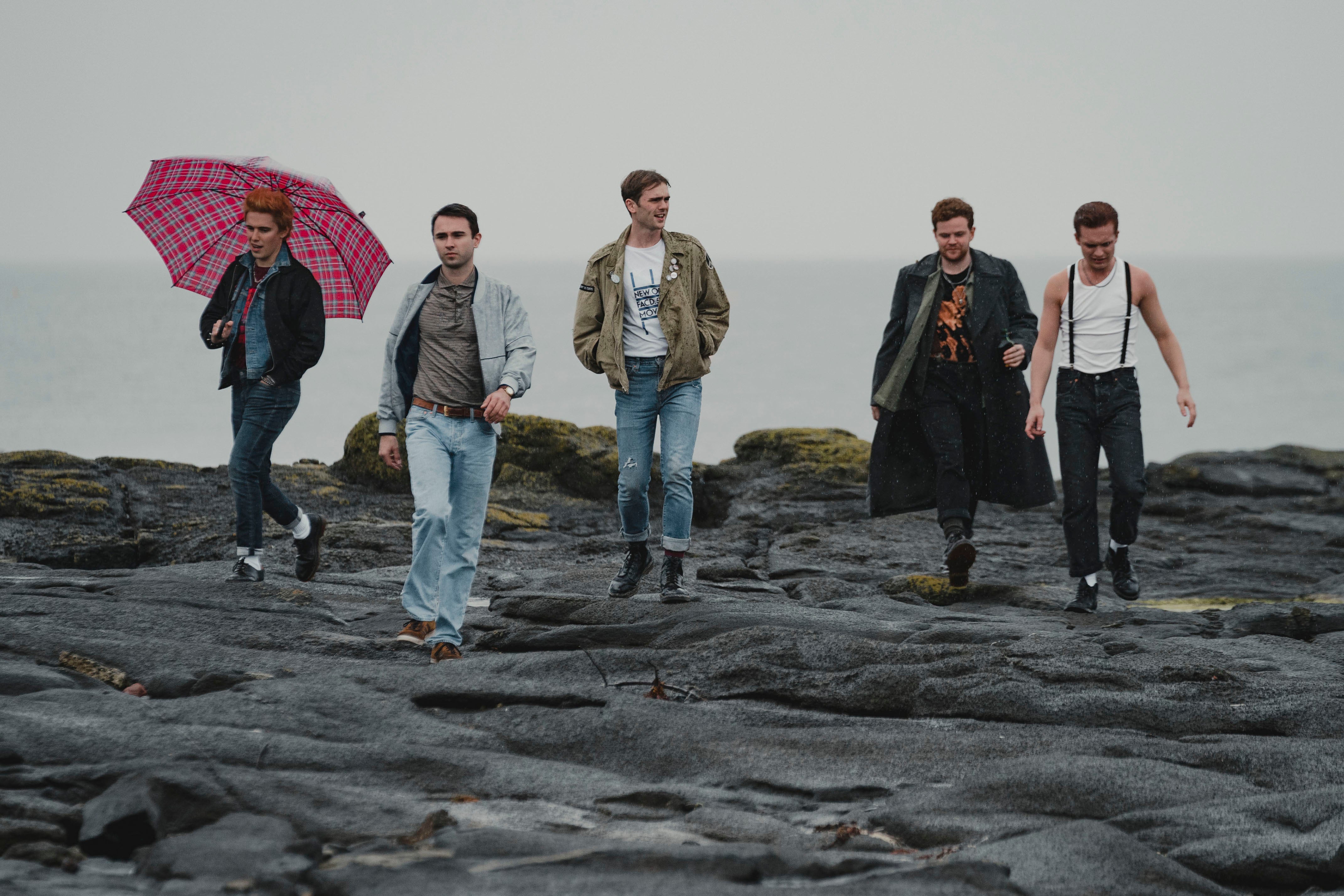
“The common mayfly has a life expectancy of just one day,” announced the voiceover in a memorable Vodafone advert from the early Noughties. “But is he miserable about it? Not one bit.” This insect’s life, repurposed as metaphor, has come to represent the flickering flame that is human existence. Life, getting shorter with every passing minute. It’s no surprise then that Scottish novelist Andrew O’Hagan used “mayflies” as the title of his 2020 novel about two friends working through a lifetime of memories as the light fades, a story that’s adapted this Christmas as a BBC One two-part special.
Martin Compston is Jimmy, a successful author returning to the Ayrshire of his youth at the behest of Tully (Tony Curran), his oldest friend who has incurable cancer. “I’m f***ed, Noodles,” he says, using Jimmy’s childhood nickname. “I’ve got four months and that’s the short of it.” Jimmy – the nebbish half of the duo – is drawn back into the world of charismatic Tully, as the dying man plans a trip to Switzerland to end his life. But exiting the stage is not simple – Tully’s wife Anna (Ashley Jensen) wants him to persist with chemotherapy and try to prolong his time on Earth. Through this process of premature trauma, Jimmy and Tully are forced to confront the kids they were, and the men they’ve become.
If you’re only familiar with Martin Compston’s acting from his feeble turn in Line of Duty, you’ll be pleasantly surprised by Mayflies. Compston’s Jimmy is a still, small voice of calm amid the turbulence of palliative care. Curran, meanwhile, is grizzled and gregarious. Their teenage counterparts (played by Rian Gordon, a dead ringer for a young Compston, and House of the Dragon’s Tom Glynn-Carney) charge across Eighties Scotland, breaking into music venues and discussing how a Kenny Dalglish header “led to the rise of Thatcherism”. But it is Ashley Jensen who is most devastating, as a wife shut out of the biggest decision of her life. “It doesn’t have to be traumatic,” she rages. “People die normal deaths every day!”
Be prepared: Mayflies is seriously sentimental. Some of the rose-tinted reflections on adolescence might stretch credulity, and the Thomas Newman-inflected score hammers home the melancholic atmosphere. There is a touch, too, of melodrama to proceedings – in a moment of quasi-baptismal revelation, Tully wades into the sea fully dressed – that inhibits total emotional clarity. You can throw in Johnny Marr and the Hacienda, Marxism and Thatcher, but, in the end, this is John Green for grown-ups. Still, this tendency towards the maudlin doesn’t stop Mayflies being effective. Unless you’re Cameron Diaz in The Holiday, you’ll doubtless be brought to tears.

“Let’s do it after the high Roman fashion,” Shakespeare wrote in Antony and Cleopatra, “and make death proud to take us.” This is the line that Tully quotes back at his bookish friend, strong-arming him into the Swiss plan. “You said it,” he tells Jimmy, “you gave me my last quote.” Over the course of just two hour-long episodes, Mayflies plays out almost as fleetingly as the lives of the insects from which it takes its name. Death, when it comes, is not in the highest Roman fashion – asp clutched to bared breast – but in the unglamorous observation, on the way to an assisted dying clinic, that he’ll “never see Scotland again”. Tender, to a fault, Mayflies poignantly captures life’s terminal evanescence.







